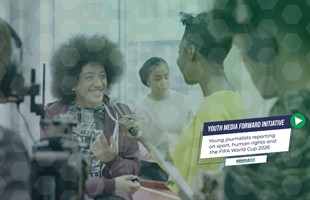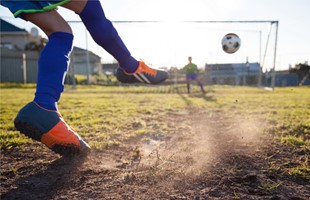Consultation Open: Guidance for the Consideration of Human and Child Rights and Safeguarding Aligned to ISO 20121
02 Feb 2022
Author - Centre for Sport and Human Rights
The International Standards Organisation’s (ISO) 20121 standard on event sustainability is a management system standard for the delivery of a sustainable event, and was inspired by the London 2012 Olympic and Paralympic Games. It is very widely used across the sports industry with the IOC requiring all host city organising committees to be certified with the standard at least three years before their event.[1]
Unicef UK has been working alongside Positive Impact Events – a not for profit providing education, engagement, and collaboration to create a sustainable event sector – to develop guidance on human and child rights and safeguarding which aligns with the ISO 20121 standard. This year, ISO 20121 is due for a systematic review, presenting an opportunity for changes to be made to the standard and for the guidance to be considered as an additional annex.
The Centre for Sport and Human Rights, together with Unicef UK and Positive Impact Events, convened a consultation session on 24 January 2021 with 25 sport federations and local organising committees to introduce them to the new guidance, as well as the process involved in reviewing an ISO standard, and why sport federations are critical to this process. The consultation featured interventions from Unicef UK, Positive Impact Events, ISO and the British Standards Institution (BSI).
There are 167 member countries within ISO and over 300 technical committees looking at over 23,000 standards. Typically an ISO standard is developed out of an existing national or regional standard, existing documents such as technical regulations, existing good practice, or just a new idea that is not yet formalised. From there a standard goes through extensive review and consensus is built at every stage. Throughout this process, it is critical to gather consensus from both experts and countries – only then can a standard be considered internationally agreed. National standards bodies then play a critical role in developing the standards and in determining whether a standard gets reviewed – usually this opportunity emerges every five years.
From inception, the ISO 20121 standard was developed in close consultation with event experts who piloted the standard and provided feedback on its feasibility and practicality. BSI took the leading role in formalising ISO 20121 off the back of the London 2012 Games, and will be looking to engage on revisions to the standard around March 2022. However, different national committees will have different ideas of what they want included in a revision, and there needs to be momentum to ensure agreement exists around proposed changes. Here sport federations can play a critical role.
ISO standards are written in language specific to standardisation, so it is understandable that when ISO 20121 was initially developed, a key piece of feedback from event experts was that the language of the standard itself was confusing. This is partly why annexes were developed – to provide guidance and help with implementation for event practitioners. The current draft guidance on human and child rights has been written with this in mind. Key elements of the new guidance include providing an overview on human and child rights, as well as honing in on specific issues including stakeholder engagement, clear and robust policies aligned with internationally recognised human rights standards, thorough human rights risk assessments, and access to remedy.
It was in the spirit of providing clear guidance through annexes that this consultation was convened: with the view to piloting and soliciting feedback from those who will be using the new guidance – sport federations and local organising committees themselves. Sporting events can, and have, provided leadership around this standard in the past, as evidenced by the London Olympics and Paralympics, and sport federations have the power to both shape the guidance, and ensure that their events are held to sustainable standards. Sport federations therefore have a tremendous opportunity to build momentum around this guidance and once again, demonstrate leadership in moving the wider events sector forward.
Sport federations and event organisers are invited and encouraged to be part of the review process in three ways:
- Provide feedback on the guidance itself. The latest version of the guide, with a set of guiding questions to help focus the feedback, can be found here. Anyone can provide feedback until Monday 21 February.
- If you are a sports federation that represents international members, you could make yourself known to your national standards body as an interested party who would like to have their views taken into account. (For example, if you are a federation based in Switzerland, you could contact the Swiss Association for Standardization). This would allow you to provide input when the Systematic Review starts, but you would not have voting rights on the final decisions. Please contact ISO directly https://www.iso.org/contact-iso.htmlto find out more.
- Finally, if you would like to join the review committee of a specific country, please contact your national standards body.
[1] https://stillmed.olympic.org/media/Document%20Library/OlympicOrg/IOC/What-We-Do/celebrate-olympic-games/Sustainability/sustainability-essentials/SUSTAINABILITY-ESSENTIALS_v6.pdf



